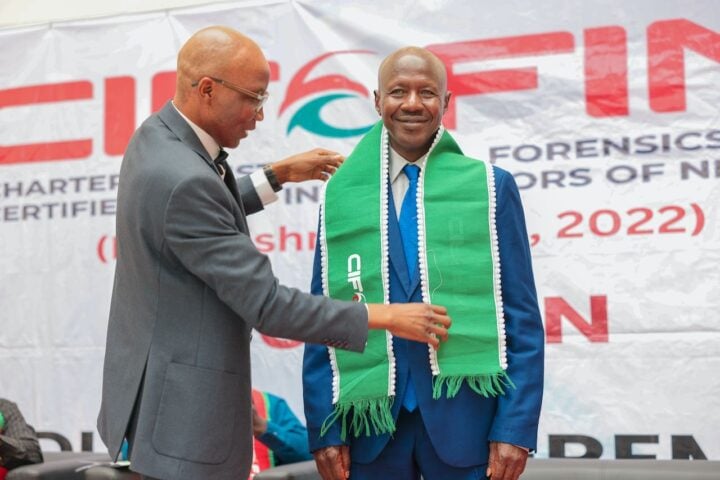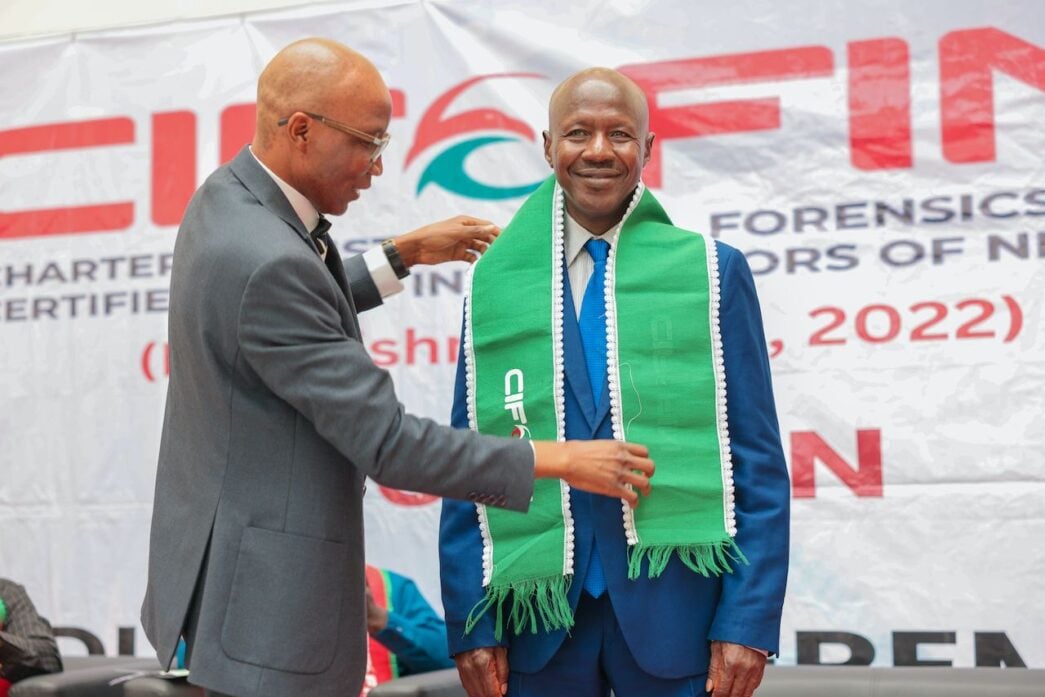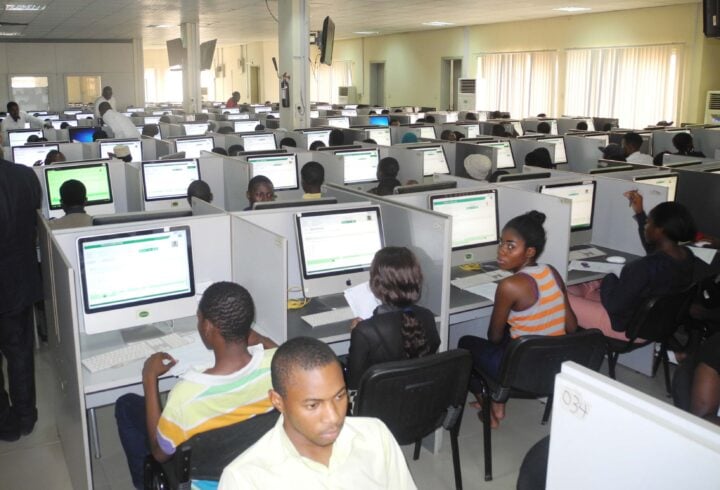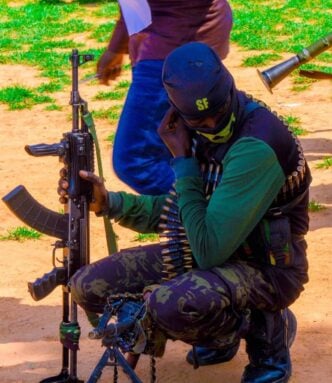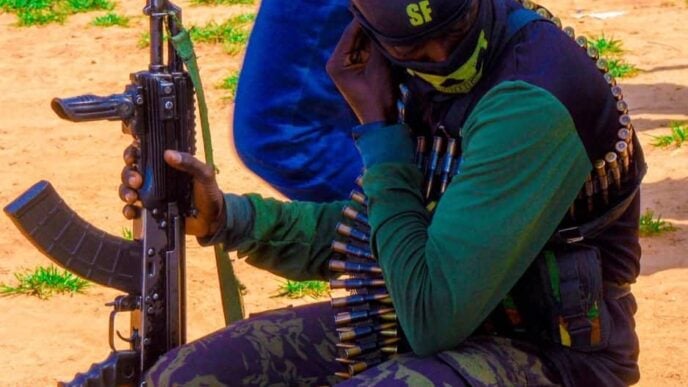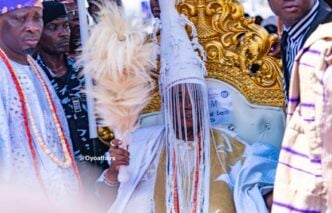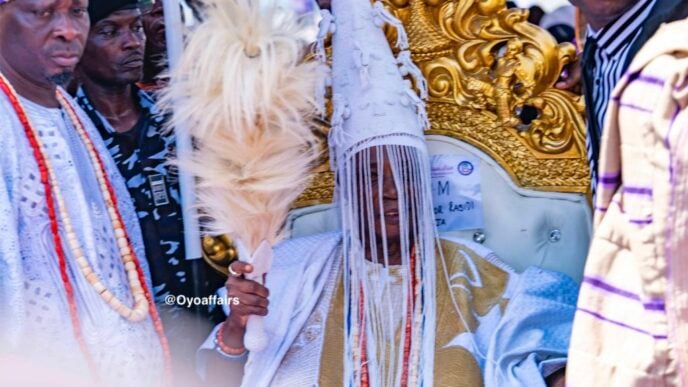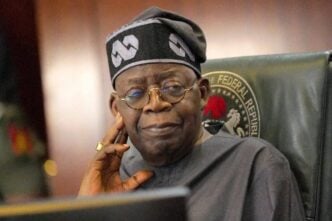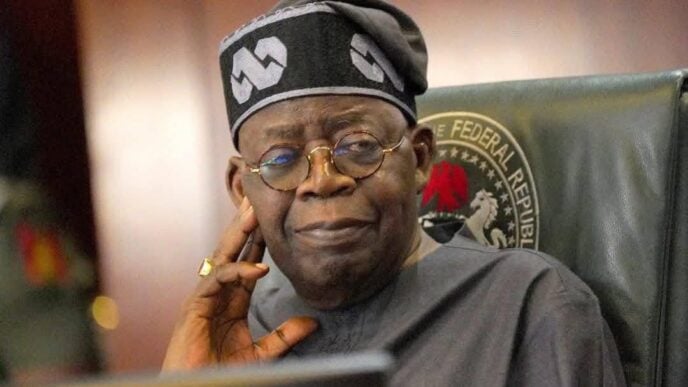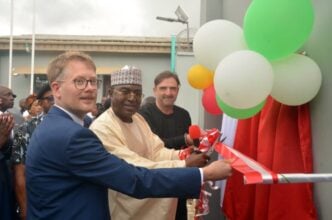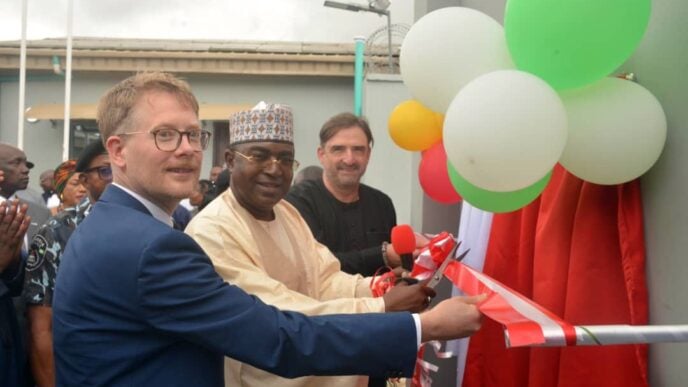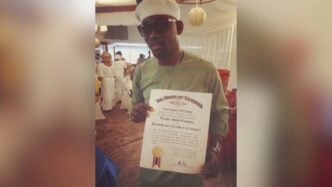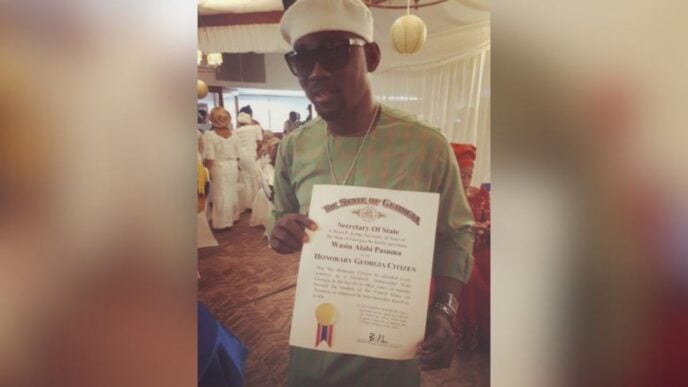L-R: Iliyasu Gashinbaki, pioneer president and chairman, governing council of Chartered Institute of Forensics and Certified Fraud Investigators of Nigeria; and Ibrahim Magu, a former acting chairman of the Economic and Financial Crimes Commission (EFCC), during Magu's induction as fellow of the institute in Abuja
Ibrahim Magu, former acting chairman of the Economic and Financial Crimes Commission (EFCC), has called for the inclusion of anti-corruption studies in Nigeria’s school curriculum.
Speaking on Thursday during his induction as a fellow of the Chartered Institute of Forensics and Certified Fraud Investigators of Nigeria (CIFCFIN) in Abuja, Magu said the fight against corruption cannot be won by a single individual or institution, stressing the need for collective action.
“Corruption must be fought across the board. One man cannot fight corruption. Everybody is involved, whether you like it or not,” Magu said.
He asked CIFCFIN to strengthen collaboration with the judiciary, schools, and professional bodies to deepen the use of forensic evidence in courtrooms and integrate anti-corruption education into primary and secondary curricula.
Advertisement
Magu also recalled the challenges of setting up the Nigeria Financial Intelligence Unit (NFIU) and the initial public resistance to money laundering laws, noting that sustained public enlightenment remains key.
“If you must have a very tight case, then you have to bring in the forensic aspect,” he added.
Magu described his induction as a fellow of the institute as motivating, saying it would encourage him to continue championing forensic investigation as a tool in fighting corruption.
Advertisement
Iliyasu Gashinbaki, pioneer president and chairman of CIFCFIN’s governing council, commended Magu’s leadership at the EFCC despite the challenges of the job, insisting that history often vindicates those who fight corruption with integrity.
“Once you fight corruption, corruption will fight back. But history has a way of vindicating those who stand on the truth,” he said, describing the EFCC chairmanship as “the most difficult job in Nigeria”.
Magu, one of the EFCC’s founding officers in 2003, was appointed acting chairman in 2015 and led several high-profile investigations, including the recovery of Abacha loot, the Halliburton scandal, and oil subsidy fraud cases.
Advertisement
